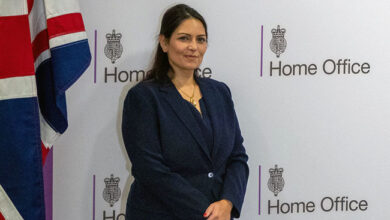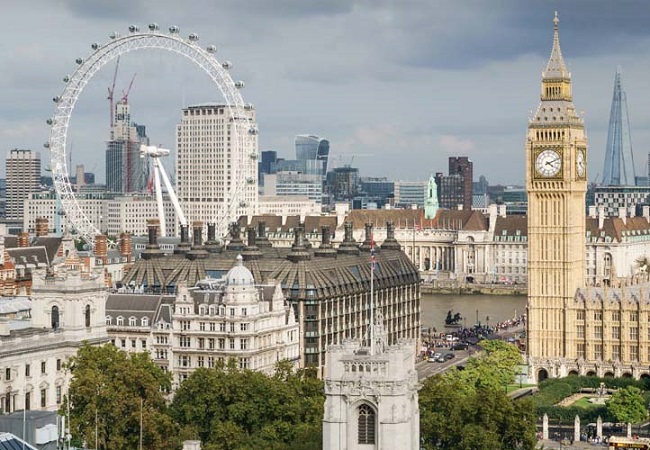Report on human rights day virtual conference
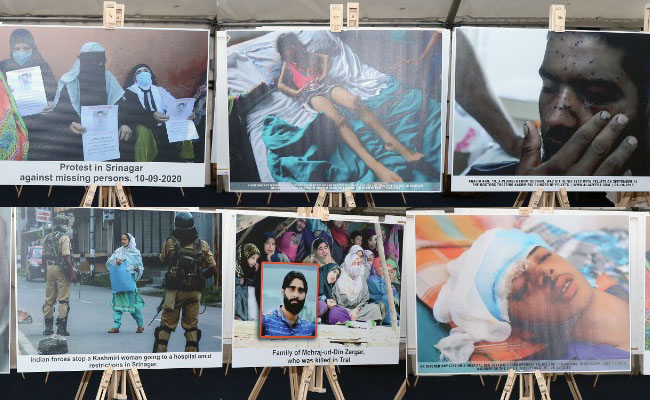
London: Organisation of Kashmir Coalition (OKC) organised a virtual conference on the Human Rights Day on the theme Human Rights & The New USA Administration – Impact on South Asia (With Special Reference to Jammu & Kashmir).
Opening the conference, Professor Alfred de Zayas, (the First (former) Independent Expert on the Promotion of a Democratic and Equitable International Order) stated that he has advocated throughout, particularly since his Report to the United Nations General Assembly in 2013, that peoples self-determination is the best mechanism for
conflict prevention and a pre-condition to global stability. He added that the world constitution is the Charter of the United Nations which lays down the purposes and principles (in particular Articles 1&2) for the world order including the peoples inalienable right to self-determination affirmed in other covenants and conventions of the UN. Professor de Zayas articulated that the people of Jammu and Kashmir have right to exercise their self-determination today because they are occupied and denied by the fascist regime at New Delhi; India simply cannot annex the people and territory of Jammu and Kashmir. He urged that there should not be any obstruction to peoples right to self-determination and no violation of fundamental international law. Referring to the United States of America (the US), Professor de Zayas lamented that the US spends 40% of its budget on building its arms industry, selling weapons to other countries such as India. He urged the Kashmiri activists to lobby the General Assembly and the Security Council to place arms embargo on India. He is happy to see that Trump is gone but believes that the Biden/Harris administration is unlikely to make a huge change in the US foreign policy on human rights but believes that the level of predictability could be there which is crucial for international order.
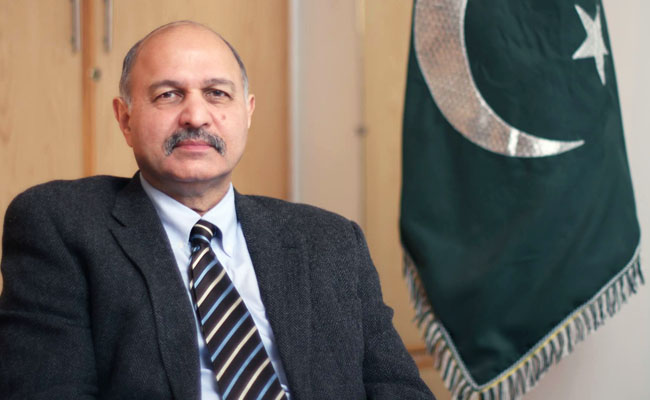
Senator Mushahid Hussain Syed, Chairman of the Pakistan Senate Foreign Affairs Committee, in his presentation highlighted three important realities in relation to the US foreign policy and the Kashmir issue; first being the post 9/11 phase that appears to have come to an end after the US having squandered $6.4 trillion on futile wars in the region and the middle east resulting in decline of the US influence in large parts of the third world especially the Muslim world; secondly, there has been a shift in global political and economic power away from the West to the East leading to the retrenchment of the US power and influence and the rise of China and thirdly, there is a fundamental transformation of India under Narinder Modi and the Rashtriya Sevak Sangh (RSS) occurring from the Nerhruian secularism to exclusive radical Hindutva based on cast, religion and ethnicity at the institutional level; this follows today RSS India is the state of India and this has direct implications on the occupied territory of Kashmir and India’s neighbours including Pakistan, China, Nepal and Bangladesh. While dwelling on the upcoming new Biden/Harris administration, Senator Mushahid Hussain Syed analysed that the Trump administration pursued the ideological foreign policy on China and Iran putting Israel first; this has evolved a new cold war; the new administration has to face these challenges; therefore, it is likely to adopt far more principle stand on human rights issues than real politique; it is possible to restore the nuclear deal with Iran which could lead to more positive atmosphere within the region and relations with Pakistan could be enhanced as Biden’s involvement with Pakistan is well known and the Afghan factor can not be ignored and this would mean that the Kashmir factor becomes crucial and Pakistan has now the opportunity to raise this issue forcefully and Washington certainly has to be more responsive.
Ms Victoria Schofield, a Historian and Writer, commenting on the Biden/Harris election victory believed that Kamala Harris as the next Vice President of the US is fantastic and that she is optimistic about the new administration. She remarked that the US elections set a different agenda worldwide witnessing four years lack of moral compass in terms what is permissible; the right wing regimes having gained strength and act with impunity. Ms Schofield stated that some individuals in the US might have survived because of the checks and balances system there but the countries that do not have this system, such as India, people suffer. She argued that the US has traditionally fostered human rights and that message needs to get through to the new administration. With regard to the Kashmir resolution and the US new administration role, Ms Schofield suggested that human rights ought to be on top of the agenda as human rights is a precondition to stability; in Jammu and Kashmir there are no human rights therefore, there is no stability; statistics are there how Kashmiris human rights are trampled, it is mainly women who suffer; nonetheless human lives matter, women’s lives matter and children’s lives matter. In her concluding remarks, Ms Schofield proposed to refocus on Kashmir, using our voices and pens – speaking and writing, as the new administration is an opportunity for change and to emphasis on the Biden/Harris administration that if there is no resolution to the Kashmir issue and the sovereignty is not restored to Kashmiris, there is no stability in the region.
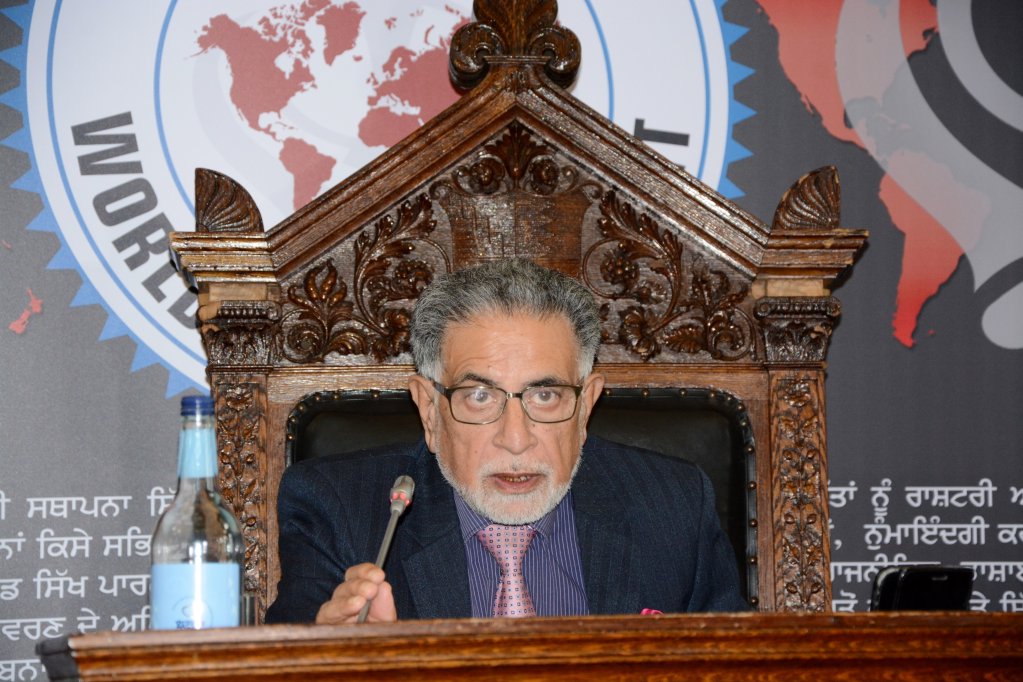
Professor Nazir A. Shawl, OKC Leadership, stated that the leadership of Joe Biden will desire to cool the anger in the Muslim majorities of the world to conquer their hearts and minds for a world free of discord; the policies of the previous administration were discriminatory not in conformity with liberal democratic tradition. Professor Shawl
further stated that the President Elect understands the existential importance of peace and stability in the region; the US geostrategic objectives in South Asia will remain constant; competition and confrontation are not convergent; and Biden will choose competition with China and shun a militaristic approach. He argued that the upcoming administration is likely to maintain its ‘strategic partnership’ with India in keeping with its perceived standing as a counter-poise to China; this relationship will have to be read in tandem with two newer nuances in the anticipated American posture: first, Biden unlike Trump is expected to deal with China as a competitor, a hard one, though short of treatment of an antagonist; this implies a posture devoid of bullying; second, the Democrats are better known for their primary commitment to human rights and democracy abroad and if one goes by their election time pronouncements, the human rights scenario in Kashmir and excessive use of force there; in clinical terms, these two factors can potentially impact on the quality of the Indo American cooperation. Professor Shawl pleaded that the US should avoid contrived ambiguity on Kashmir; it needs to be appreciated that Kashmiris deserve and desire peace; they should be helped to have a tryst with their destiny in accordance with the UN charter and UN resolutions.
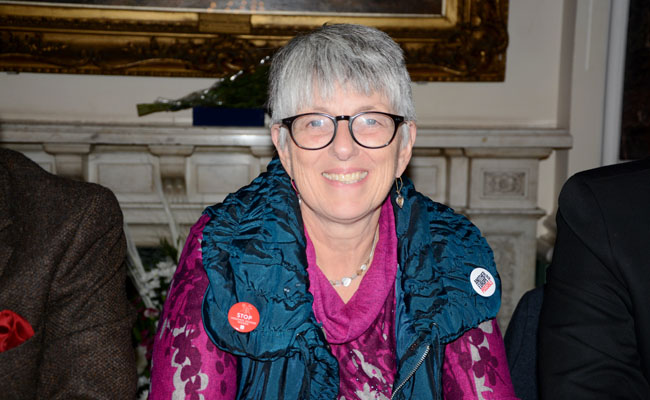
Ms Julie Ward, a former member of the European Parliament, made the point that human rights are universal and that one must stand up for all human rights in solidarity with everybody anywhere in the world. Exemplifying the sufferings of the people of Jammu & Kashmir and Palestine, she elaborated that they suffer because they are denied to determine their political futures, all rights scrapped and land acquiesced. Ms Ward advocates that the “Black Lives Matter” movement is a beacon in shedding away slavery and consequentially promoting human rights; as such wherever people suffer one should stand always in solidarity with the suffering people such as farmers in India who have taken to streets because of the repressive laws enacted against them. Analysing Narendra Modi, Ms Ward expressed that the Modi government’s brutality is directed even on Indians themselves through the caste system, incredible discrimination, inequality & poverty; Modi stands along with other repressive, neo
fascist, autocratic and populist leaders who ought to be shamed as they discredit quality democracy. Commenting on the recent elections in the US, she expressed her satisfaction with the Biden/Harris victory; she was privileged to be involved in virtual election mission, watching some of the counting on Zoom that was an extraordinary experience. She believes that Trump and Modi are of the same mould and regrets that in 2020 & 2021, the world still witness neo fascist and racist tendencies leaders but pleased to see that Trump has gone and others shall follow. Ms Ward considers the upcoming Biden/Harris administration a breath of fresh air and hopes that the new administration shall place human rights, quality democracy and diversity at its heart. She hoped that it will promote green agenda in which Jammu & Kashmir shall have pivotal role to play as this territory has extraordinary natural resources so far not fully exploited and shared with the world.
Ambassador Arif Kamal, in his intervention, opined that support for ‘strategic relationship’ with India transcends political divides in the US; It is rooted in perceived size of India and its standing as a counterpoise of China; the status on this count is likely to continue unchanged. In his elaboration, Ambassador Kamal argued that one needs to look at this from the stand point of a possible erosion in the quality of this relationship for two if not more reasons; recent discussion forums, the participants were inclined to look at the question from multiple angles: Biden is expected to look at China as a competitor rather then an adversary; and, If so, dependence on New Delhi as counterpoise to Beijing will be potentially on the down scale. He stated that today, we
are witnessing pressures on the given human habitat, the suffocation caused by assault on people’ s political identity and retrogressive steps towards their dis empowerment; what one expects of the upcoming US administration towards addressing the human rights issues in Kashmir; would that much be good enough to generate a new resolve for
peace; peace that comes with justice; and peace that is sustainable. Ambassador Kamal contended that the friends of Kashmir including those focusing on human rights, can hope for a significant forward move on three counts if this can come soon. – Kashmiri voices ought to be strengthened as the principal party in the triangle of dispute and persistent efforts be made to enlarge their interface with the international community; shifting focus back to human dynamics as
against territoriality of the competing powers; – The advocacy networks among diaspora, in close contact with the unheard in the heartland Kashmir should twin human rights with right to self determination as two sides of one coin; and – One can hope that a Sino American thaw will give more space for international moves to address the Kashmir issue.
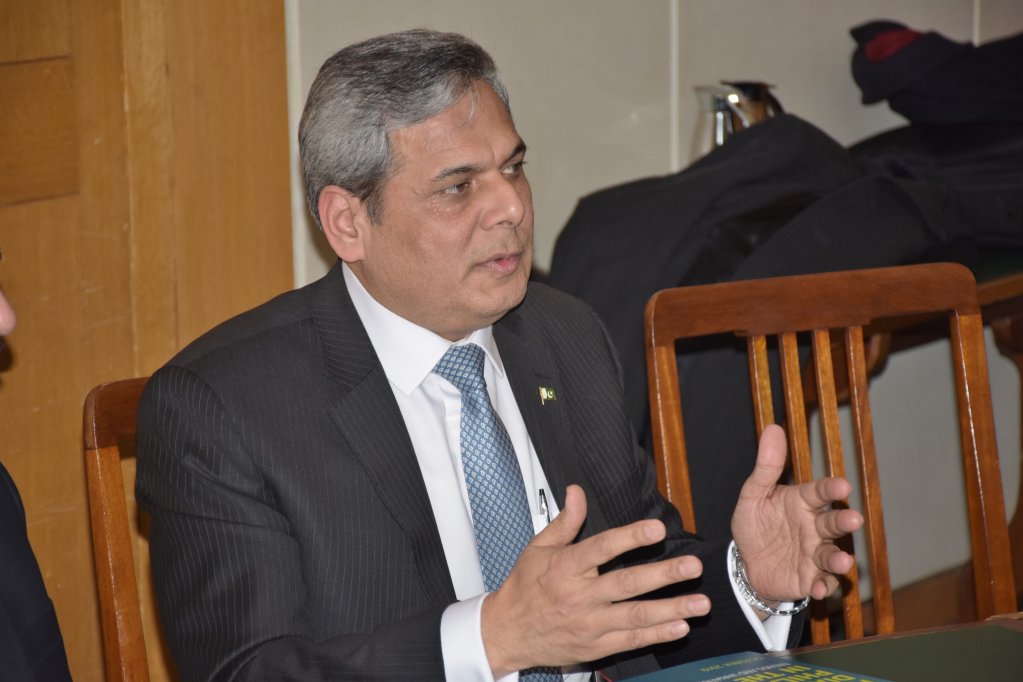
Ambassador Nafees Zakaria analysed the theme of the conference in the following terms: – The US has long term strategic, political and economic interests linked to the South Asian part of the world where they have their traditional rivals; therefore, it would be unrealistic to expect any drastic change in the US policy; – The US policies towards the region of our location would have both challenges and opportunities.- Another dimension to look at the Kashmir issue from international perspective is that the US and other major powers, particularly the P-5 Members of the UN Security Council have a responsibility which they must fulfil; – Kashmir issue has 4 dimensions, viz. Political, as it is an internationally recognised dispute sitting on the UNSC agenda with its unimplemented resolutions; Security, as Kashmir dispute was dubbed by the US leadership as the nuclear flashpoint; Socio-economic, as it has been impeding economic prosperity of the region that hosts world’s largest concentration of people in abject poverty; and most importantly the Human Rights; – Human Rights violations (or crimes against humanity) and perpetual genocide that the Indian occupation forces are perpetrating with impunity against the defenceless Kashmiris are well documented (International People’s Tribunal Report on mass graves entitled: Buried Evidence; Amnesty International’s Report on mass deliberate blinding of Kashmiri youth entitled: Losing Sight in Kashmir; Mass rape of Kunan Poshpora; Genocide of 1947 of Jammu’s Muslims; 2 dozen massacres and loads of documented accounts of Indian atrocities are available and should enable the champions of human rights to take action against India); Action speaks louder than words; the time has come when world leaders, the flag bearers of human rights and defenders live up to their responsibilities and obligations.
Professor Josep Lluis Alay, Associate Professor of Asian History at the Faculty of Geography and History, University of Barcelona, in his presentation expressed that self determination is a global issue and by the same token human rights are universal. Analysing the Biden/Harris victory in the US elections, Professor Alay said that all the self-determination causes ought to be put before the US new administration jointly; this perhaps shall have more weight and effectiveness. He believes that the initial conditions of the Biden/Harris team are good in terms that over the last 2 years the team has supported human rights globally; Kamala Harris supports the Kashmir cause together with the Rohingyas; the nominated team apart from Joe Biden and Kamala Harris includes Tony Blinken, nominated Secretary of State and Jake Sullivan, nominated National Security advisor, both of them are top diplomats and were part of the Obama administration but the new factor in the equation is Kamala Harris of whom instils hope. Professor Alay further elaborated that the crucial task with the new administration is how to tackle China; the big question is whether the new administration will follow Trump on this or embark altogether on a different course; certainly, the new administration will view China linking its relationship with India in which case, at least, in the near future Washington may follow the Trump’s model on India. Further, he remarked that there is uneasiness between India and China resulting in skirmishes which are now frozen because of winter but on Bhutan’s side both the countries are building their military installations and with no clear border on the Arunachal Pradesh side; all this is not comforting for the US and it remains to be seen as to how the new administration shall view China and India confrontation. Professor Alay considers that the new administration’s foreign policy is likely to be conditioned with human rights; therefore, it is a good opportunity for Kashmir to be recognised as a self-determination issue that India refuses and this needs to be averred through the US. In conclusion, Professor Alay is pleased to see that young journalists in Kashmir are still fighting for self-determination and defending their right of expression; this immeasurable work is acknowledged as one of the young Kashmiri Journalists was nominated for the Reporters Without Frontiers award; this is a crystal-clear recognition of the Kashmir cause that will go long way to help the cause.
Dr Ishtiaq Ahmad, Vice-Chancellor of the Sagooda University, in his articulated presentation stated that with the US under the Democratic leadership of the President Elect Joe Biden and Vice President Elect Kamala Harris in the next four years starting from 20 th January 2021, the space of conflict resolution on Kashmir has certainly widened; least because the Vice President-Elect is on record for having pledged not to
leave the suffering Kashmiris alone, a possibility that may translate into reality if the international stakeholders of peace on Kashmir are able to generate enough diplomatic momentum in the light of current Indian repression in the disputed region. Dr Ahmad commented that by annexing and dividing the disputed region of Jammu and Kashmir in August 2019 and thereafter undertaking an unprecedented process of political and demographic marginalization of its largely Muslim populace, India’s BJP government of Prime Minister Narender Modi has taken the fate of Kashmiri Muslims to the next level of the state repression; however, by default, the current state of horror in occupied Jammu and Kashmir offers enormous opportunity for a persuasive diplomatic camping to protect and preserve the fundamental human rights of Kashmiri people; India’s annexation and division of the disputed Jammu and Kashmir region since August 2019 has brought about a major qualitative shift in the fate of Kashmiri lives. He further commented that its subsequent lockdown and repression, especially the enforced demographic transformation currently under way, have aggravated the humanitarian crisis, especially in the hard-hit, Muslim-dominated Valley of Kashmir; hence, the Kashmiri Muslims are now faced with a deadlier situation than before; virtually, every passing day marginalises their political status and socio-economic space, in a land that belongs to them through history, race and religion. Dr Ahmad believes that a second consequence of India’s latest misadventure in the disputed territory is that Kashmir has once again emerged as a nuclear flashpoint, renewing tensions between India and Pakistan and pushing South Asia into yet another round of risky instability, as clear from the Pulwama incident of February 2020; and, at a time when the US-led effort to bring peace to the war-torn Afghanistan is seriously under way and the possibility of the US re-joining the Iran nuclear deal is on the horizon, the strife-torn region can ill afford to reignite the much older Indo-Pak conflict. He further argues that the Indian government’s heinous agenda in occupied Jammu and Kashmir, being dictated by extremist Hindu organization RSS, is crystal clear: to realize a Hindu majoritarian form of settler colonialism, that will permanently seal the fate of Kashmiri people; this is the red line Prime Minister Modi crossed on 5th August 2019, when his BJP regime revoked Article 370 of the Indian Constitution, and annexed and divided the disputed land; in order to reverse India’s latest excesses in Jammu and Kashmir, Pakistan, together with other stakeholders of peace in Kashmir, needs to make a concerted diplomatic effort at the global level; this is a matter of immediate importance; for the purpose, the possible shift in regional geopolitics after the end of populist Republicanism under President Donald Trump in the US offers a renewed opportunity. Dr Ahmad remembered that, of course, the Kashmir struggle, like other legitimate national liberation movements, was marginalized by the post-9/11 War on Terror, during which repressive states like India got the opportunity to portray any instance of politically motivated violence against the state authorities as terrorism; the subsequent rise of authoritarian regimes led by populist leaders, from Trump to Modi and in Europe and elsewhere, constituted a global trend, which allowed Hindu extremists to exacerbate the Kashmiri tragedy at will; in the past year or so, the global pandemic has also distracted world attention from regional conflicts, where Kashmiri Muslims have paid the ultimate price. With reference to Biden’s victory in the US elections, he regards this as a sigh of relief, as populist leaders and authoritarian regimes may not be able to get away with murder with impunity as they did during the Trump era. This means that Modi may face greater international scrutiny over his current excesses against Kashmiri people and Muslim minority in India; with the expected recession in global pandemic in 2021, conflict resolution may also regain the lost world attention; overtime, the global terrorist wave has considerably receded as well; therefore, India’s portrayal of Kashmiri resistance as terrorist violence may find less diplomatic appeal in the world capitals in future. Dr Ahmad considered the China factor in the context of Kashmir dispute has assumed greater significance for Pakistan, especially in view of India’s annexation of Ladakh as a separate entity from the rest of occupied Jammu and Kashmir territory; Given its persisting sensitivity over the Tibetan plateau, China has reacted offensively to India’s divide-and-rule policy in the disputed region, as apparent from the Sino-Indian border clashes in the past year; since 2013, the China Pakistan Economic Corridor (CPEC) has helped Beijing and Islamabad to deepen their strategic ties; hence, in undertaking its renewed diplomatic outreach campaign on Kashmir, Pakistan must also coordinate closely with China, a permanent member of the UN Security Council, where the pledge for peaceful settlement of Kashmir was first made and which is where all diplomatic efforts and humanitarian struggles towards the same end must concentrate.
Frank Schwalba-Hoth, Founding Member of the German Greens and one of the first Green members of the German Parliament and the European Parliament, in his short presentation suggested that the Organisation of Kashmir Coalition (OKC) need to include other credible organisations in the coalition such as media organisations to give a wider voice to the Kashmir cause. He was pleased to note that Reporters Without Frontiers included a Kashmiri journalist in the last 12 finalists. Mr Schwalba-Hoth stated that over the years he has worked closely with the US diplomats within the EU corridors and believes that under the new Biden/Harris administration these diplomats are prepared to do much more on human rights and Kashmir as against the Trump administration. He is optimistic to persuade the new US administration to act as an honest broker on Kashmir bringing together Kashmiris, Pakistan and India involving civil societies such as OKC to bring about an acceptable solution to the Kashmir issue in accordance with the aspirations of the people of Kashmir. He believes that the Biden/Harris administration should take this initiative as they have nothing to lose.
Professor Joseph Wronka, Professor of Social Work, Springfield College, MA; Fulbright in Pakistan and Austria, 2015; Representative to the UN in Geneva for the International Association of Schools of Social Work (IASSW), identified that the Biden administration with its multilateral approach to global interventions and intends to re-join the UN Human Rights Council, the World Health Organization, and the Paris Climate Accord is in direct contrast to the Trump administration’s approach. Yet, policies often represent public sentiment, and the USA needs massive human rights education to better understand, if not counteract feelings of American exceptionalism. The world needs also to understand and take direct non-violent actions as a global community to understand the seriousness of the Jammu Kashmir situation both nuclear armed countries.
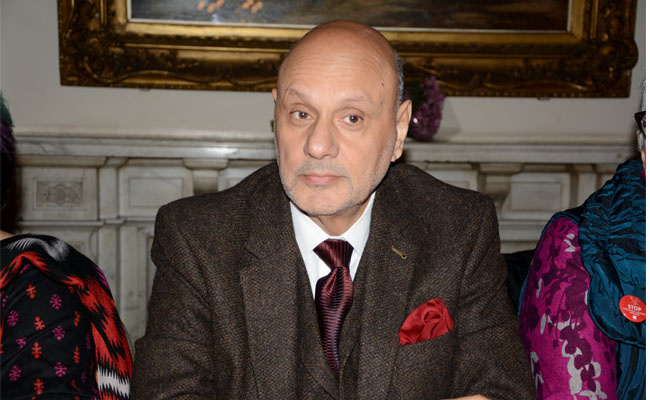
Barrister A. Majid Tramboo, OKC Leadership and IHRAAM’s Permanent Representative to the United Nations, who moderated the conference, in his introductory remarks stated that, since its adoption in 1948, the Universal Declaration of Human Rights (UDHR), no doubt considerable efforts have been made to build the UDHR’s principles; the UN Human Rights Council and the General Assembly work prudently to promote and protect people’s human rights; nonetheless the Member States have crucial role to play in this direction particularly states like United States of America (US). He hopes that the new US administration under the leadership of Joe Biden wants to cool down the anger among the Muslims in the world; policies of the previous administration were discriminatory and not in conformity with the liberal democratic traditions of the US Democratic Party. In a perspective of this change of administration, Barrister Tramboo remarked that the Organisation of Kashmir Coalition (OKC) is on the forefront to enhance the audibility of voices on Jammu & Kashmir’s 73 year old United Nations pending issue; the Kashmir situation, in recent times, has been complicated by the neofascist regime now in power in New Delhi: moribund, regressive and often even acting in a fascist way; Kashmiris identity, culture and demography have been imperilled that can lead to a catastrophic situation and threaten and even lead to a new military confrontation possibly nuclear. He highlighted that there is evidence based genocide occurring in the Occupied Jammu & Kashmir; OKC has to work towards finding a country that would be prepared to initiate proceedings at the international Court of Justice, the right forum for this.


